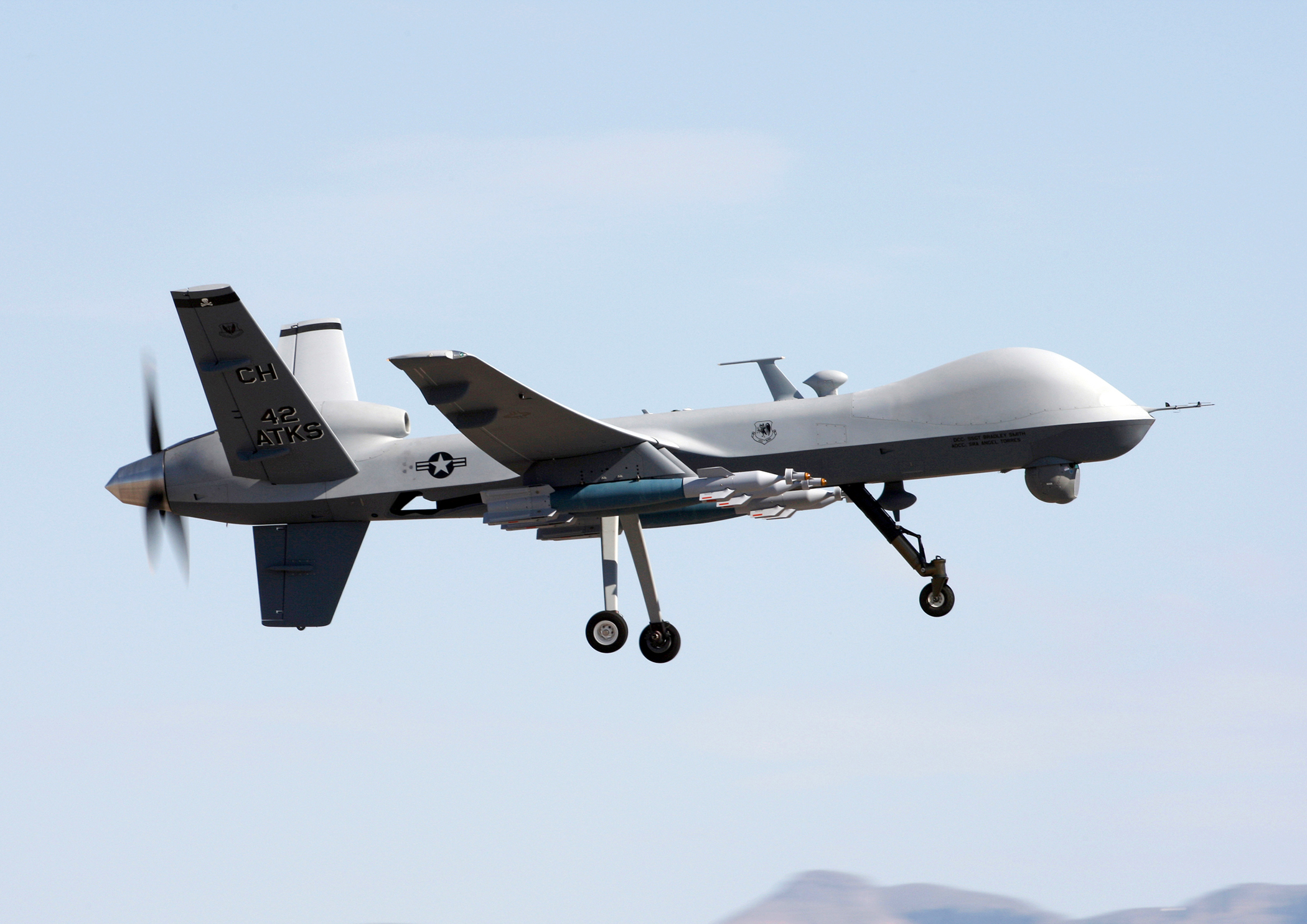How should faith communities respond to drone warfare?
 In the last decade, the use of military drones has increased, raising an important question people of faith must answer: Exactly how should we respond? As U.S. drone strikes continue in the Middle East, the faith community has yet to come together around a common understanding and strategy that addresses the issue.
In the last decade, the use of military drones has increased, raising an important question people of faith must answer: Exactly how should we respond? As U.S. drone strikes continue in the Middle East, the faith community has yet to come together around a common understanding and strategy that addresses the issue.
Now, with the help of four leaders of the United Church of Christ, the first Interfaith Conference on Drone Warfare taking place later this month will begin to examine the moral implications of the use of military drones.
“As a Just Peace Church, it’s important we hold our government accountable for the way the nation engages in war,” said the Rev. Michael Neuroth, UCC international policy advocate for Justice and Witness Ministries. “As a denomination we’ve proclaimed the hope that peace is possible, and the ease with which the U.S. and other countries use drones makes the hope of peace less and less likely.”
At Princeton Theological Seminary Jan. 23-25, a diverse group of people of faith from across the nation – including religious leaders from several denominations and faith organizations, and scholars of religion, law and foreign policy – will gather for the first Interfaith Conference on Drone Warfare. There are already about 120 people from Christian, Jewish, Muslim and Quaker faiths registered to attend.
“We as a denomination must consider the implications of this technology and what it means for us as a country and for us as citizens,” added Neuroth.
Joining Neuroth at the conference is another national staff member, Derek Duncan, and two UCC clergy, the Rev. Susan Thistlethwaite and Rev. Susan Hayward, who are among the panelists. Thistlethwaite is a professor of theology at Chicago theological Seminary and Hayward is a program officer with the U.S. Institute of Peace.
“For the church, we should be calling the public to have an honest conversation about what it means for our nation to use drones, in effect, as a form of summary execution, and as collective punishment with high numbers of civilian casualties and significant psychological trauma inflicted on communities subjected to drone fly-overs and attacks,” said Duncan, associate for global advocacy and education of Global Ministries of the UCC and the Christian Church (Disciples of Christ). “Our partners around the world living under the threat of drones have challenged us to raise awareness of these issues and raise these questions. This conference is an opportunity to do that.”
Since 2004, there have been more than 400 drone strikes conducted by the CIA in Pakistan, Yemen and Somalia, according to the British-based Bureau of Investigative Journalism. The result is at least 2,500 people killed, 480 of which are civilians, and another 1,225 in injuries. Even four U.S. citizens have been among the innocent casualties.
“We don’t have a General Synod statement on [drone warfare] yet,” Neuroth said. “Given our Just Peace witness, and the way drones are used in causing civilian casualties, that causes concerns for me. In the past, we’ve had Synod resolutions on nuclear weapons and land mines, so it’s important that, with the increasing use of drones, we consider their morality.”
Conference participants will hear from law, policy and religious experts, and reflect on the issue of drone warfare from their unique faith perspectives to develop policy recommendations to the U.S. government. The conference will also make recommendations to the religious community on how it should respond to the issue of lethal drones.
The Rev. Richard Killmer, project director for the conference, said, “The issue of lethal drones presents an urgent moral concern to the religious community because the use of lethal drones makes it easier to enter into war. We will call on the religious community to do what it can to make the policy recommendations a reality.”
For more information, and to register for the few spots remaining for the conference, visit its website.
Related News
A Prophetic Call for Justice and Peace in Palestine
The executive leaders of the United Church of Christ have issued the following statement...
Read More‘Love is Greater Than Fear’: Regional Youth Events get to the heart of gospel message
United Church of Christ teens attending this summer’s Regional Youth Events (RYE) are...
Read MoreUCC desk calendars available to order now
Prepare for your day, month and year with the United Church of Christ desk calendar —...
Read More


